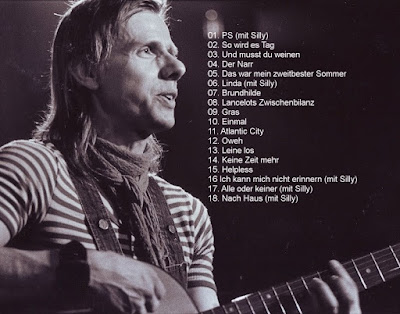
Erich Mühsam was an anarchist who despised dogma & close-mindedness in reform movements, particularly as manifested in Marxism. He believed adamantly in the power of the individual & the power of the lowest classes of society.
A radical critic of bourgeois society, Erich Mühsam rejected all forms of state control and advocated political anarchism from an early point. He fought for a radical form of soviet democracy in the 1918 November revolution, was sentenced to fifteen years’ imprisonment in a fortress in 1919 for “literary high treason,” and not pardoned until 1924. He published the anarchist monthly magazine "Fanal" from the fall of 1926, calling for “social revolution.”
Mühsam was arrested immediately after the Reichstag fire, and severely maltreated. He was regarded as a “November criminal” – a particularly loathed Marxist. Erich Mühsam was taken from the prison in Berlin’s Lehrter Strasse to Sonnenburg concentration camp, from there to Berlin-Plötzensee prison, and finally to Brandenburg concentration camp. At the beginning of October 1933, he was put into Oranienburg concentration camp, where he was also subjected to violence. Erich Mühsam was murdered by an SS commando in the night of July 9-10, 1934.
"Streit & Kampf
Nicht nötig ist’s nach Schritt und Takt
gehorsam vorwärts zu marschieren.
Doch wenn der Hahn der Flinte knackt,
dann miteinander zugepackt
und nicht den Nebenmann verlieren !
Schlagt zwanzig Freiheitstheorien
euch gegenseitig um die Ohren
und singt nach hundert Melodien -
doch gilt es in den Kampf zu ziehen,
dann sei der gleiche Eid geschworen !
Aktionsprogramm, Parteistatut,
Richtlinien und Verhaltungslehren -
schöpft nur aus allen Quellen Mut !
Ein jedes Kampfsystem ist gut,
das nicht versagt vor den Gewehren !
Darum solang kein Feind euch droht,
verschont einander nicht mit Glossen.
Doch weckt euch einst der Ruf der Not,
dann weh das einige Banner schwarz und rot
voran den einigen Genossen!"
Erich Mühsam
Klabund was the pseudonym of
Alfred Henschke (born Nov. 4, 1890, Crossen, Ger. - died Aug. 14, 1928, Davos, Switz.),
an Expressionist poet, playwright, and novelist who influenced German literature with his adaptations and translations of Oriental literature. Notable among his free, imaginative renderings of Chinese, Japanese, and Persian literature are
Li-tai-pe (1916),
Lao-tse (1921), and
Der Kreidekreis (1924;
The Circle of Chalk), a drama that inspired the German playwright Bertolt Brecht to write his play
Der kaukasische Kreidekreis (
The Caucasian Chalk Circle).
A consumptive who spent many years in sanatoriums, Henschke identified with the eternally seeking wandering poet and called himself Klabund, a name derived from
Klabautermann (“hobgoblin”) and
Vagabund (“vagabond”). Restlessness and versatility characterize his work. He composed poetry in a variety of forms, and he created a new prose form, the “Expressionist novella.” Notable in this genre are his autobiographical “novels of longing,” with themes of sickness and love; biographical “novels of passion,” with sensual portraits of historical figures (
e.g., Pjotr, 1923;
Peter the Czar); and his greatest achievements in prose, two “novels of fulfillment”—
Bracke (1918;
Brackie, the Fool) and
Borgia (1928;
The Incredible Borgias).
Ernst Busch worked with Erich Mühsam in 1928 in the working men drama "Judas" and one year later in the play "Sacco und Vanzetti" at the "Piscator Bühne" (Berlin). The Erich Mühsams songs "Lumpenlied" and "Der Revoluzzer" became a regular part of Ernst Buschs musical repertoire. So it was self-evident that he would dedicate an edition of his "Aurora" project ("Eine Chronik in Liedern, Balladen und Kantaten aus der ersten Hälfte des 20. Jahrhunderts") to Erich Mühsam. The recordings were done in 1965, the double EP was released in 1966.
Ernst Busch - Zeit-, Leid-, Streitgedichte - Erich Mühsam & Klabund (Aurora, 1966)
(192 kbps, cover art included)






























